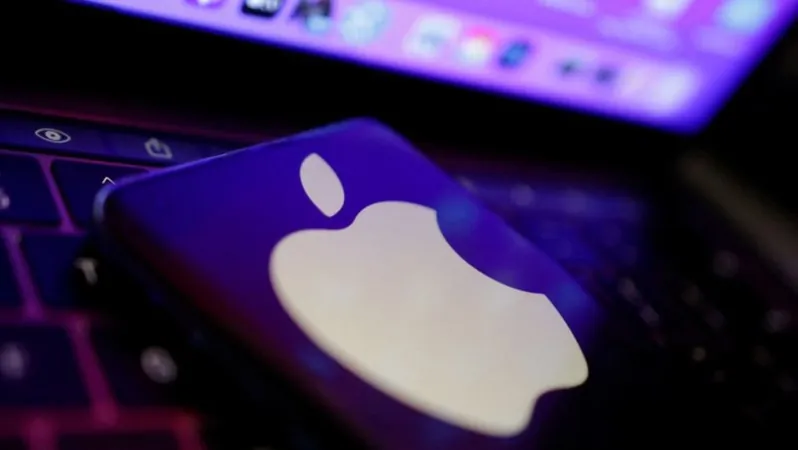
Apple Faces Major Antitrust Challenge: Can the iPhone Maker Escape a Smartphone Monopoly?
2024-11-20
Author: Ming
Overview of the Antitrust Lawsuit
In a pivotal moment for the tech industry, Apple Inc. is set to approach a federal court on Wednesday in an attempt to dismiss a high-stakes antitrust lawsuit filed by the U.S. Department of Justice (DOJ). This case accuses the tech giant of illegally maintaining a monopoly over the smartphone market, sparking critical debates about competition and innovation in the digital age.
Arguments from Both Parties
U.S. District Judge Julien Neals, based in Newark, New Jersey, will hear arguments from both Apple’s legal team and federal prosecutors. The DOJ contends that Apple imposes restrictive measures that lock users into its ecosystem, stifling competition by limiting how third-party apps and devices can interact with the iPhone. This raises concerns about consumer choice and market fairness.
Apple, on its part, defends its practices, arguing that any limitations on developers’ access to its proprietary technologies are justified and necessary to protect user privacy and security. The company warns that mandating the sharing of its technology with competitors could ultimately hinder innovation and compromise the integrity of its products.
Context of Big Tech Scrutiny
This lawsuit is part of a broader trend of bipartisan scrutiny surrounding Big Tech companies. The scrutiny began during Donald Trump’s presidency and continues to be an area of focus under President Joe Biden’s administration. Notable cases include Alphabet's Google, which was deemed to have a monopolistic hold on online search, and Meta Platforms, which faces legal challenges due to its alleged anti-competitive practices in acquiring emerging rivals. Amazon is also embroiled in controversy regarding its treatment of sellers and suppliers.
Historical Precedents
Interestingly, historical context reveals that several antitrust claims against major firms have faltered in court. Notably, a judge previously dismissed the Federal Trade Commission’s case against Meta regarding restrictions on third-party app developers, suggesting that the legal interpretation of what constitutes anti-competitive behavior remains complex and nuanced.
Apple's Defense and Key Issues
In its defense, Apple points to these precedents, arguing that withholding access to its technology doesn’t necessarily equate to anti-competitive conduct. The DOJ’s lawsuit focuses on specific grievances, including fees imposed on app developers and technical barriers to third-party devices aimed at competing with Apple's own services, like smartwatches, digital wallets, and messaging apps.
Looking Ahead
As the court date approaches, all eyes will be on Judge Neals. If he finds sufficient merit in the DOJ's claims, the case may proceed, potentially reshaping the landscape for not just Apple, but the entire tech industry. Could this be the beginning of the end for tech monopolies, or will Apple emerge victorious, reinforcing its control over the smartphone market? Stay tuned!
 Brasil (PT)
Brasil (PT)
 Canada (EN)
Canada (EN)
 Chile (ES)
Chile (ES)
 España (ES)
España (ES)
 France (FR)
France (FR)
 Hong Kong (EN)
Hong Kong (EN)
 Italia (IT)
Italia (IT)
 日本 (JA)
日本 (JA)
 Magyarország (HU)
Magyarország (HU)
 Norge (NO)
Norge (NO)
 Polska (PL)
Polska (PL)
 Schweiz (DE)
Schweiz (DE)
 Singapore (EN)
Singapore (EN)
 Sverige (SV)
Sverige (SV)
 Suomi (FI)
Suomi (FI)
 Türkiye (TR)
Türkiye (TR)